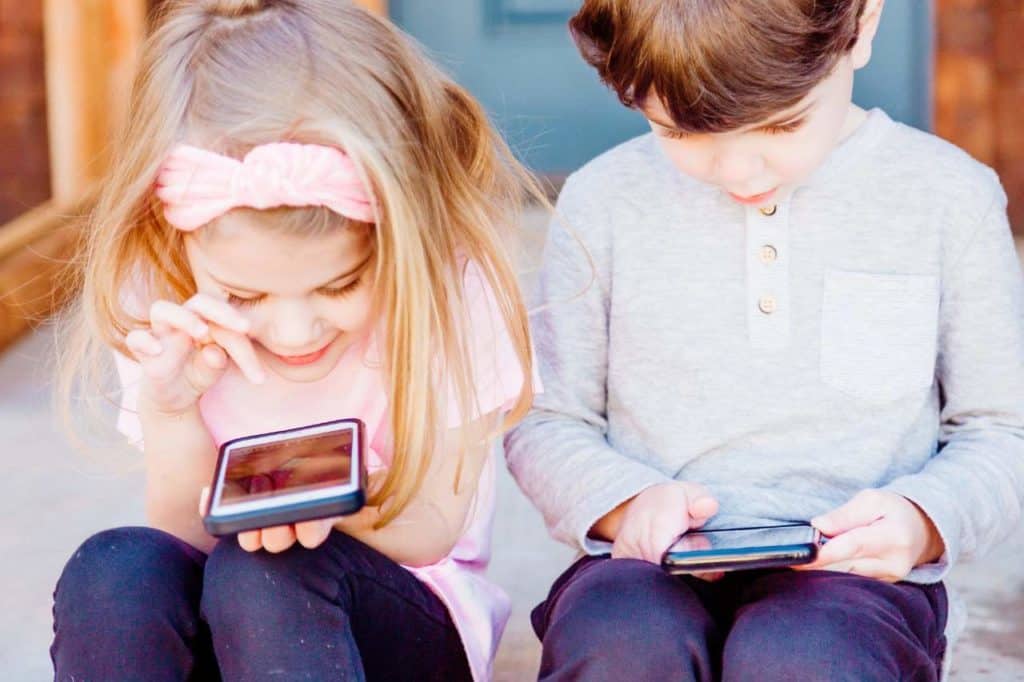The last 10 years have seen a dramatic rise in the use of social media, particularly among children. Unfortunately, prolonged exposure to this type of technology has been linked to several negative outcomes, such as anxiety, depression, decreased social skills, and low self-esteem.
It even contributes to dangerous online trends that can have serious consequences. As parents, it is important to be aware of the dangers associated with social media and take steps to protect our children from them. This article will discuss the risks of social media use among children and how we can help keep them safe.

7 reasons Why Social Media is Bad for Kids
Social media can be a great tool for connecting with friends, family, and the world. However, it can also be detrimental to children who are not yet mature enough to handle the responsibility of using it. A survey from ExpressVPN found that some children as young as 4 spend, on average, 21 minutes on social media daily.
Even though most parents responded to monitoring their children’s online activity, there are still numerous reasons why children should be kept off of social media. Here are 7 reasons why social media is bad for kids:
- Their brains aren’t fully developed: The prefrontal cortex in the brain is responsible for decision-making and impulse control, and this area of the brain isn’t fully developed until around age 25. This means that kids may be unable to make wise decisions regarding their online behavior.
- It’s very stressful: Social media can pressure kids to keep up with their peers or post perfect pictures. This can lead to anxiety and depression as they compare themselves to others online.
- It makes them bored: Kids may become so engrossed in their devices that they forget about other activities that could benefit them, such as reading, playing sports, or engaging in creative pursuits like painting or writing stories.
- It makes them more depressed: Studies have found that too much time spent on social media can increase feelings of loneliness and depression due to comparison with others online or cyberbullying from peers.
- They miss out on real-life experiences: When kids spend too much time on social media, they miss out on valuable experiences such as interacting with people face-to-face or exploring nature which can help them develop important skills like communication and problem-solving.
- Cyberbullying: Cyberbullying is a growing problem among children and teens due to the anonymity of the internet, which allows bullies to hide behind fake accounts or anonymous usernames without fear of repercussions for their actions.
- Privacy & data breaches: Kids may not understand how important it is to protect their personal information online which could lead to data breaches or identity theft if they share too much information publicly on social media sites like Facebook or Instagram.
The effects of social media on children’s mental health have been studied extensively in recent years. Excessive use of social media can lead to a range of issues, such as increased anxiety, depression, low self-esteem, and difficulty sleeping. Additionally, research has shown that too much screen time can interfere with learning and social skills development.
Identify safe ways for kids to use social media responsibly
Here are some safe ways to use social media responsibly for kids:
Set limits on the amount of time that your kid spends online. Whether it’s an hour a day or two hours per week, setting clear boundaries about when and how long kids can be online is important for maintaining their mental health and well-being.
Encourage them to have offline activities. Balance out their online experiences with physical activities such as playing sports or joining a club or group where they can interact with peers face-to-face in a positive environment.
Teach them how to filter content properly. Kids should know their limitations when it comes to what they view and share online, both in terms of age-appropriate content as well as avoiding cyberbullying and other negative behavior.
Monitor their activity closely. Parents should stay involved in their kids’ digital lives by monitoring their posts, pictures, and interactions with others on social media sites like Facebook and Instagram.
Keep communication open with your child about their feelings surrounding social media use so you can identify if something isn’t right or if they need help navigating any difficult situations online.
Emphasize that all potentially dangerous behavior is off limits, including sexting and sending explicit images to friends or strangers online, which can have serious ramifications for your child’s safety and reputation in the future.
Effects of social media on children’s mental health
When it comes to the effects of social media on children’s mental health, they can be both positive and negative. Social media allows kids to connect with their peers, share ideas, and acquire new knowledge.
However, too much use can cause insomnia, weight gain, delayed learning, social skills advancement, reduced school performance, and even mental illness like depression. Research has shown that these consequences are sadly common when children spend excessive time online.
Parents need to be aware of the potential dangers of their child’s social media use. They should limit how much time their child spends on devices and promote activities that don’t involve technology. It is also important for them to supervise what their child is accessing online to prevent exposure to inappropriate content or cyberbullying.
Moreover, parents should help their kids develop a balanced relationship with technology by educating them on digital etiquette, security measures such as strong passwords, and how to recognize warning signs of cyberbullying or online predators. This will help ensure their children stay safe while using the internet.